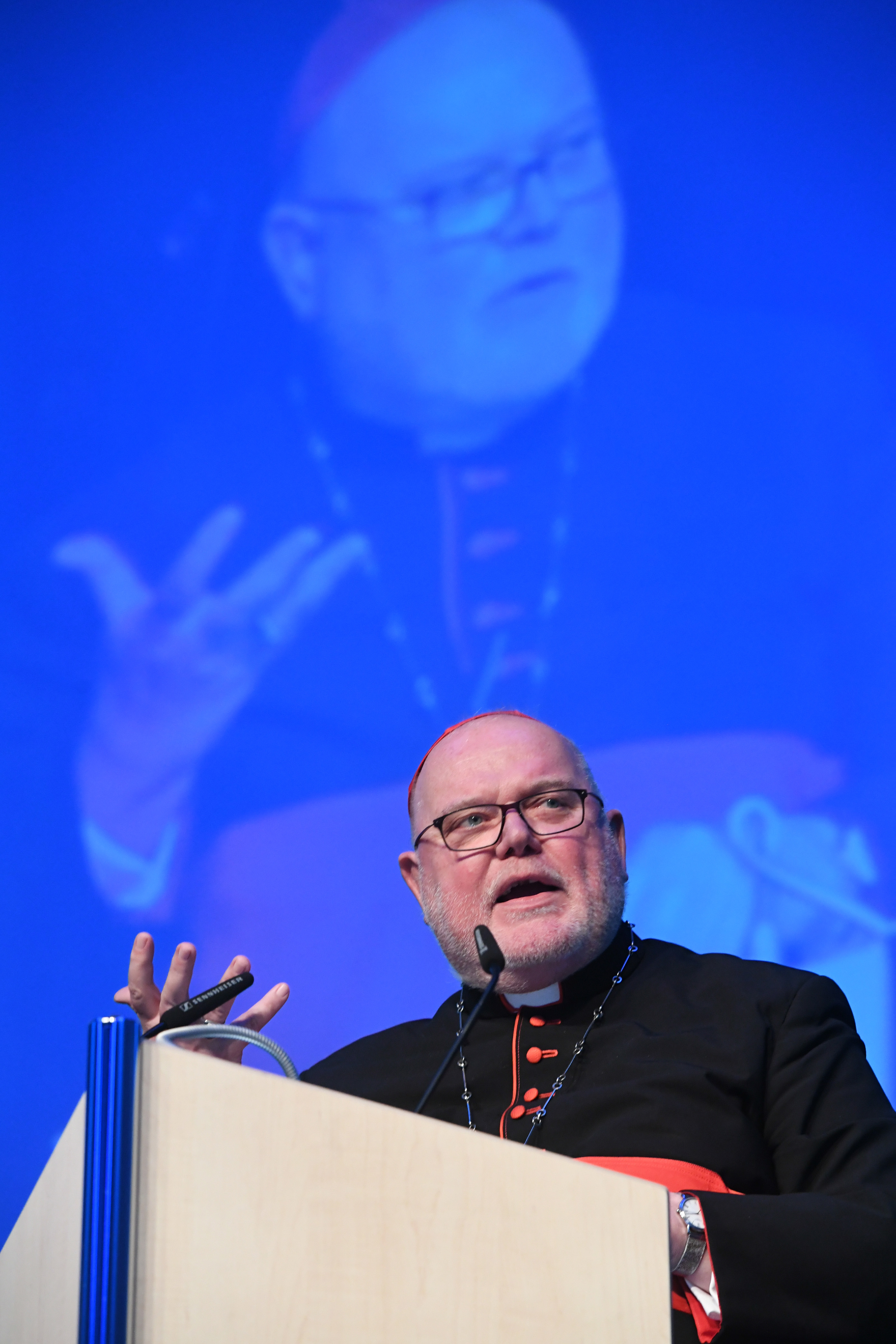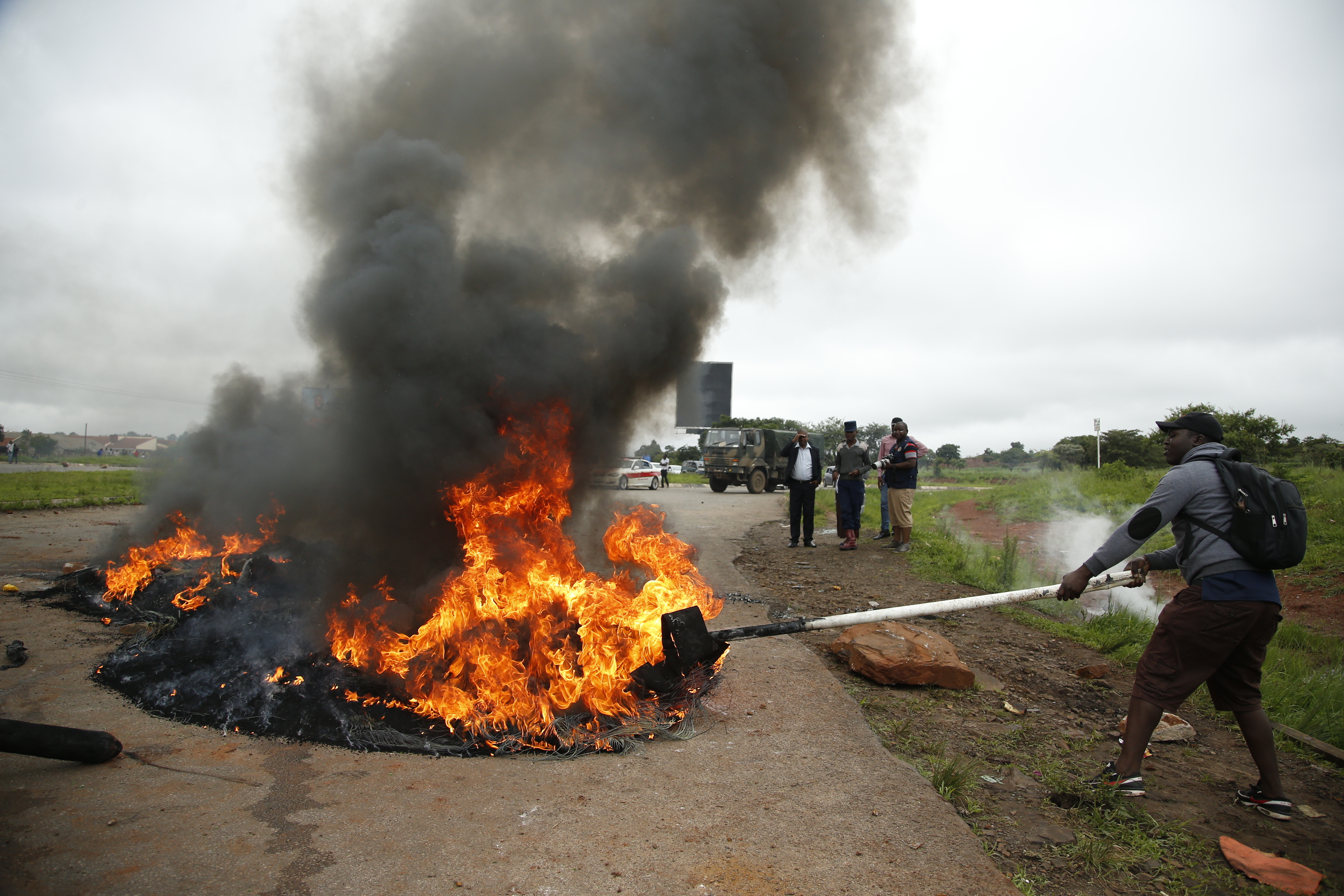Catholic Bishops in Zimbabwe have condemned their government’s “heavy-handed and intolerant handling” of widespread protests sparked by food and fuel shortages in the impoverished country, saying it has led to the “injury and death of innocent people”.
Civil disorder broke out on 14 January after the government more than doubled the price of fuel over night.
Zimbabwe is going through its worst economic crisis in a decade.
Workers' trade unions called for a three-day nationwide shutdown in response. Protestors took to the streets of the capital, Harare, and in the city of Bulawayo, burning tyres, barricading roads and looting shops. Police fired teargas and live ammunition at protestors, killing at least five people.
Access to the Internet and social media was shut off for most of 16 January and media reports from Harare said police were conducting house-to-house searches arresting and “randomly beating” protestors. Amnesty International has said at least 200 people have been arbitrarily detained.
Evan Mawarire, a pastor and prominent social media activist, was arrested at his home in Harare early on 16 January and has been charged with inciting violence.
In a hard-hitting pastoral letter released on 17 January, the bishops write that they have observed with “increasing concern and alarm” the state of Zimbabwe from the time of the military–assisted political change that took place in November 2017 to the total shutdown of Zimbabwe’s major cities that began on 14 January 2019.
The bishops say they have watched with “sadness” as politicians “failed to harness the palpable oneness and goodwill prevailing among Zimbabweans across the political divide” immediately after Zimbabwe’s long-term president, Robert Mugabe, was forced from power.
They continue, condemning their government’s “piecemeal and knee-jerk reaction” to the country’s worsening economic situation as exemplified by “the hefty increase in fuel prices on 12 January 2019”. This, they write, is the “immediate cause of the violent demonstrations and riots that have brought Zimbabwe’s major cities and rural trading centres into complete lockdown”.
“Zimbabwe is burning; its economy is hurting; its people are suffering,” they continue.
They write that many ordinary Zimbabweans are disappointed that the changes they hoped for have not been realised, they have no employment and no money.
“Our quasi currency, operating with multiple exchange rates, is fuelling a national crisis,” the bishops write.
They call for “a new and challenging kind of politics”, which is inclusive and based on strong democratic institutions that embody the values of the country’s democracy, rather than “on one or two leaders, however effective or charismatic”.
They call upon the government and the opposition to put their differences aside and “work together to free Zimbabwe from economic shackles and international ostracisation”.
They also ask that the government “desists” from "heavy-handed handling of dissent" and from “denying people their rights, including the barring of access to social media communication”.
According to reports, authorities late on 17 January have once again blocked all Internet access.
The bishops’ conclude with a message of hope, saying they believe in a God of “second chances”.
“While for many hope for a better Zimbabwe might appear lost, we re-affirm St. Paul’s message that when all else fails, there are three pillars that remain for us to hold onto: Faith, Hope and Love (1 Corinthians 13:13). Even in the midst of current tensions and disturbances there are new opportunities to rebuild hope, trust, confidence and stability in our country,” they conclude.
In a statement published on 17 January, Harriet Baldwin Minister of state for Africa said that although the UK condemns the violent behaviour of some protestors, the British government is “deeply concerned that Zimbabwe’s security forces have acted disproportionately in response.”
“We call on the Government of Zimbabwe to ensure its security forces act professionally, proportionately and at all times with respect for human life and constitutional rights. We further call on the Government of Zimbabwe to investigate all allegations of human rights abuses. We also urge the reinstatement of full internet access, consistent with citizens’ constitutional right to freedom of expression,” she said in the statement.
Zimbabwe’s president, Emmerson Mnangagwa is currently in Belarus as part of a tour of Eastern Europe where he hopes to solicit investors and strike deals in a bid to help Zimbabwe's ailing economy. He said he was saddened by the “wanton violence and cynical destruction” during the protests, in a message posted on Facebook on 16 January.
The government said in a statement that the protests account to “terrorism” and are “well-coordinated by the opposition”.
Zimbabwe is facing a severe shortage of US dollar notes which has hampered imports and caused steep price rises. Unemployment levels are at 80 per cent.
Nelson Chamisa, the leader of the main opposition Movement for Democratic Change said: "We have a national crisis which is descending into a humanitarian crisis."



 Loading ...
Loading ...